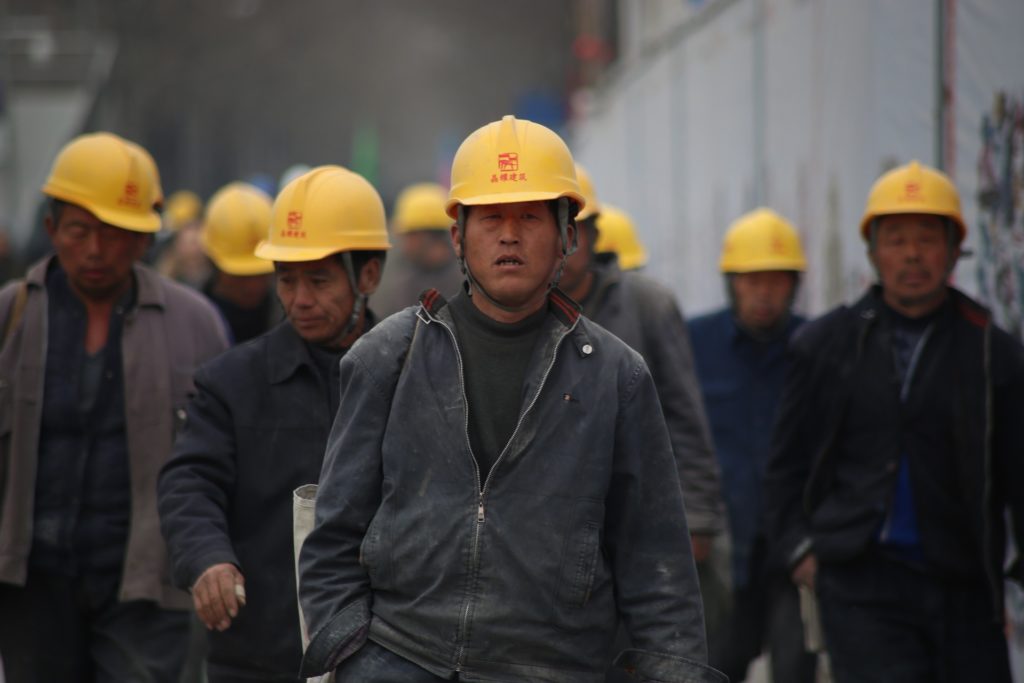
In this blog, Dr Fengjie Pan explores China’s approach to supporting enterprises weather the economic storms generated by Covid-19.
The COVID-19 pandemic has made a profound impact on many enterprises, completely disrupting their normal work rhythm and plans. Production and operations are blocked, yet they have to bear huge expenses such as personnel and rent. In order to solve the problems caused by the COVID-19 pandemic, the central government and local governments in China have successively issued a series of support policies to alleviate the pressure on enterprises and to help them overcome the difficulties they face. These policies involve trade, financial support, agriculture, tax support, labour security, support for corporate relief, etc.
Financial Support
Many micro-enterprises and Small and Medium Enterprises (SMEs) face disruption to turnover. In order to help them recover from the COVID-19 crisis, central government and local governments have successively issued a number of financial support policies to help them resume work and production, including:
- Special Funds: Firms facing difficulties can apply for special funds from the government in a timely manner according to the support policies issued by various regions.
- Financial Support: The main purpose of financial support is to provide working capital to help manufacturing enterprises and production service enterprises to actively resume normal production, actively provide credit support and expand financing channels. Enterprises severely affected by the pandemic and facing difficulty in making repayments upon maturity may have their financial support extended or renewed. For example, in Shanghai, the local government has strengthened its support for financing guarantees to key epidemic prevention enterprises and SMEs and microenterprises, ensuring that the new policy financing guarantee loans in 2020 increased by more than 3 billion yuan over the previous year.
- Tax support: Fiscal and taxation policies play an important role in supporting enterprises under the current COVID-19 situation. In China, many local governments have issued policies that enterprises can apply for tax deferral in accordance with the law. The relevant enterprises and individuals are given preferential tax treatment, and local government may eliminate the regular fixed amount of tax burden for individual industrial and commercial households.
- Support for enterprises to alleviate difficulties: Governments in various regions have introduced preferential measures such as reduction of water and electricity charges and rent for enterprises that cannot temporarily start or resume work during the epidemic prevention and control period. There are also some special preferential policies – these vary according to the nature of the industry / the difficulties enterprises face. If enterprises meet the requirements for assistance, they can communicate with relevant government departments in real-time. For example, the construction project fund policy issued by one of the provinces in China is helping ensure that construction companies resume work as soon as possible and stabilise their production.
The onus is on enterprises to take advantage of the relevant insurance fees and tax deferral and exemption policies issued by the local government in real-time and apply for the relevant fee reduction or deferred payment in time. Moreover, they can also apply for special loans and financing guarantees from banks or relevant government departments. In terms of the bank loans taken out before the epidemic, firms can apply to extend repayment deadlines to help them alleviate the pressure on their cash flow.

Employment
The COVID-19 support policy issued by the national government requires enterprises to strengthen organisational leadership, work towards epidemic prevention and control, and periodically reduce enterprise basic pension insurance, unemployment insurance, and try to reduce layoffs. Employment policy in relation to COVID-19 favours online work modes, encourages the expansion of online training, and supports the development of online vocational skills training in various places. Taking Shanghai as an example, for employers that do not lay off employees, reduce staff reductions, and meet the requirements, local government will return the enterprises’ and their employees’ 50% of the total unemployment insurance premiums actually paid in the previous year, and postpone the adjustment of the social security payment base, extend the social security payment period. Also, in Shanghai, firms organising employees to conduct online vocational training during the suspension of work the Shangai government pays a 95% subsidy according to the actual training cost.
Innovation capability
In order to support enterprises to effectively respond to the epidemic, many local governments have issued policies and measures to promote technological innovation. It is not difficult to see that the high-tech industry will have stronger competitiveness and vitality in the future. In Chengdu (the capital of south-western China’s Sichuan province, with a population of 16.33 million) for example, the local government supports enterprises to set up independent projects and advance investment around new needs arising from the outbreak of COVID-19. It encourages enterprises to focus on emerging technologies such as big data, the Internet of Things, and 5G, and carry out research and development in areas such as social governance, outbreak prevention and control, and remote office working, etc.
Local governments are encouraging the application of new technologies and new products. For example, in Chengdu firms that increase the R&D investment or form a competitive technology product during the epidemic period can get a maximum of 2 million yuan in R&D subsidies. Local government policy recognises the importance of helping enterprises build innovative product supply and demand matching activities and supporting these firms commercialise their products. At the same time, local governments are alleviating the pressure of funds for technology start-ups from the aspect of reducing the rent of technology start-ups, increasing the support of science and technology finance, and expanding the support range of technology innovation vouchers, etc.

Business model transformation
Although COVID-19 is causing problems to enterprises, there is an emphasis on enterprises taking the opportunity to transform or optimise their business models to increase their risk resistance capability. The emphasis is on enterprises thinking about how to apply high-tech to the production and operation of their own industry. For example, in agriculture, many local governments in China are issuing policies to effectively deal with the impact of the Covid-19 pandemic on agricultural production and rural economic development. Policies include subsidies for agricultural machinery allocation, the arrangement of farmers’ education and training funds, promotion of ‘agricultural big data + finance’ financing models, etc. The idea is to seize the opportunity to achieve technological upgrading to improve the efficiency of agricultural production and the quality of agricultural products.
Learning for the West Midlands
Although the above measures are applied in China with a different political and institutional system, some of the policies may provide learning for the West Midlands.
In China the national government issues guidance on how local government should help enterprises and then local government issues specific policies in accordance with their local economic situation. A particularly interesting policy from the Shanghai government is the measure providing firms which organise employees to conduct online vocational training during the suspension of work with a 95% subsidy of the actual training cost. This results in an improvement in work skills to prepare for the company’s future development. It also enables companies to improve the speed and quality of digital transformation and accelerate the formation of new business development models combining “offline + online” working.
This blog was written by Dr Fengjie Pan, Research Fellow, City-REDI / WM REDI, University of Birmingham.
To sign up for our blog mailing list, please click here.
Disclaimer:
The views expressed in this analysis post are those of the authors and not necessarily those of City-REDI / WM REDI, University of Birmingham.
